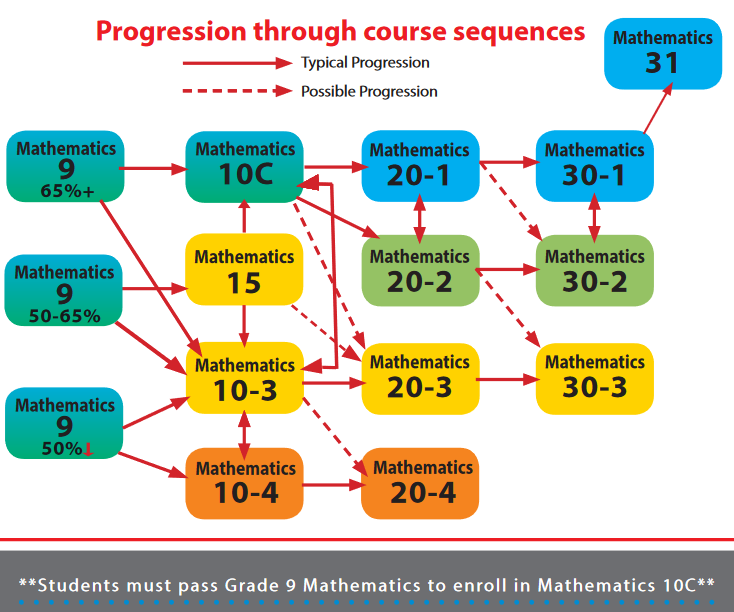Everybody uses math whether they realize it or not. Like reading and writing, a solid understanding of mathematics is essential for everyday living and in the workplace. Mathematical skills help us to shop wisely, buy the right insurance, remodel a home, interpret statistics, understand population growth, calculate travel distances and so much more.
Through mathematics we develop numeracy, reasoning, thinking and problem solving skills. These skills are valued not only in science, business, trades and technology, but in other areas like fine arts, music and sports. More than ever, Alberta students need a strong grounding in mathematics to meet the challenges of the 21st century and to be successful in their futures.
Note: Students require a graphing calculator for all math streams except 10-3,
20-3, and 30-3. The Texas Instruments TI-83 Plus, or TI 84 Plus calculator is
recommended at Sturgeon Composite High School.

